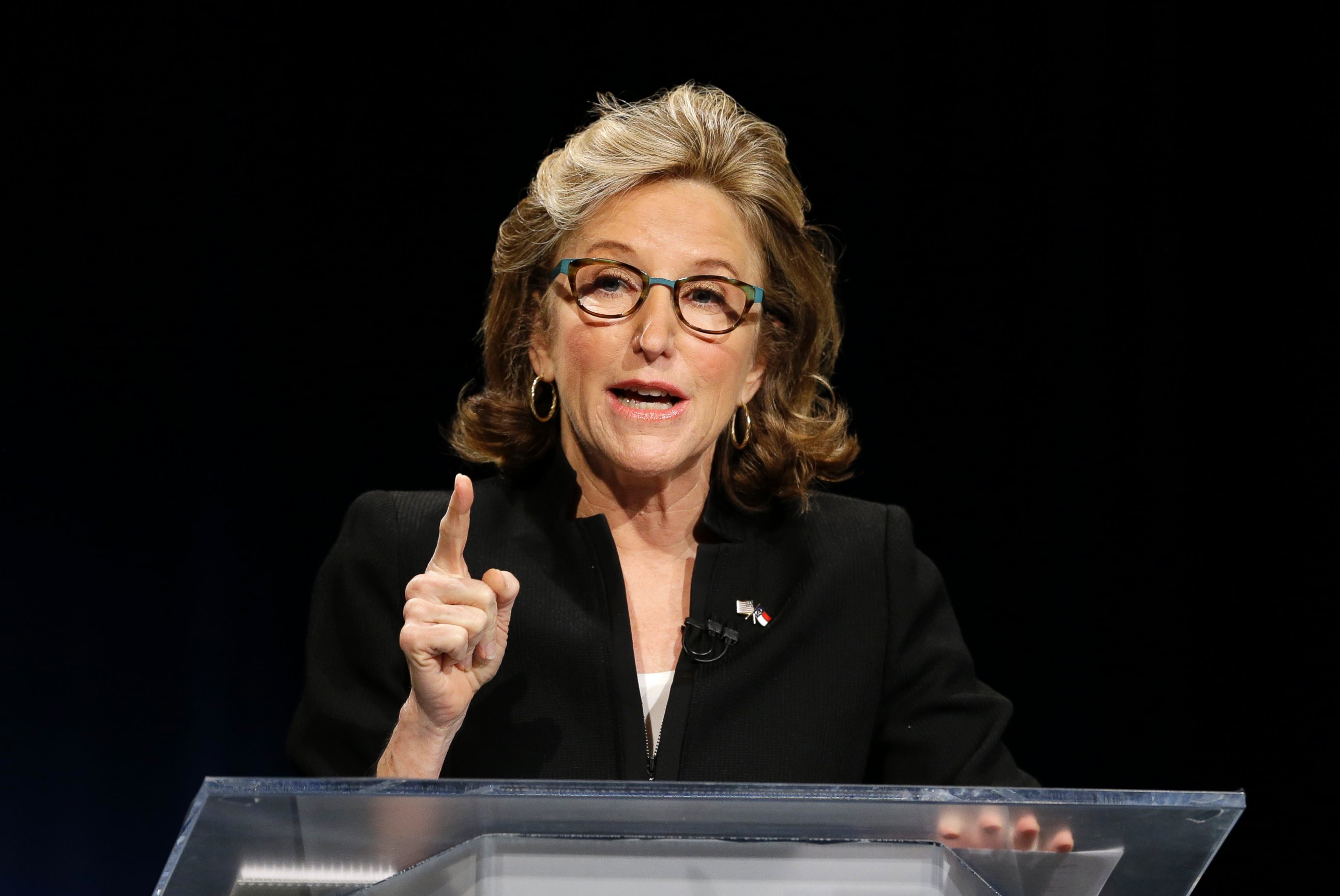A State-by-State Look at Why the GOP Is Cautiously Optimistic About Election Day 2014
Is Democrats' get-out-the-vote machinery enough to save their majority?

— -- Republicans enter the final six-day stretch before Election Day with a cautious air of confidence. They believe more than six seats needed to win the Senate are within their grasp. But they still aren’t sure, exactly, just which six they may win.
Even at this late stage of the campaign, the GOP believes it has only three races in the bag: Montana, South Dakota and West Virginia. A half-dozen others remain stubbornly too-close-to-call.
Yet not all of these races are the same. Take, for example, the As and the Ns.
Arkansas and Alaska are the closest to falling into GOP control, but can a muscular ground game help Democrats beat the odds in at least one?
New Hampshire and North Carolina are closest to being safe for Democrats, but will strong winds of voter discontent help Republicans win at least one?
With those two questions looming, these four races hold all the cards: Colorado, Iowa, Kansas and Georgia. Democrats are now relying most on red-state magic to maintain their Senate majority, which could be a tall order.
But despite a difficult environment for Democrats, the 2014 campaign does not yet feel like a wave election for Republicans, according to ABC News interviews with nearly two-dozen candidates, campaign managers and strategists. In background conversations with a wide array of Republicans, Democrats and their Super PACs across the country, we found several areas of agreement – with some more reluctant than others to admit – in how they view the landscape in the final week.
Here’s a look, based on our reporting:

Alaska and Arkansas are trending Republican. Dan Sullivan, the Republican candidate in Alaska, and Rep. Tom Cotton, the GOP contender in Arkansas, have held narrow, but consistent edges in private and public polls. Most Democrats reluctantly admit the races are tough to win.
Iowa and Colorado are trending Republican. Many Democrats in their respective states concede the Republican candidates, Cory Gardner in Colorado and Joni Ernst in Iowa, are in the driver’s seat and need an overwhelming Democratic turnout to overcome the GOP momentum. Republicans are bullish about both contests, particularly Iowa.

New Hampshire and North Carolina are consistently leaning Democratic. The races are close, but Republicans concede they likely need an 11th-hour game change to defeat incumbent Democratic Sens. Jeanne Shaheen and Kay Hagan. The GOP super PAC, Crossroads, is no longer investing in New Hampshire, a sign that Republican challenger Scott Brown's path is uphill.
Finally, two more things to watch in the closing week: A potential bright spot for Democrats in Georgia and a possible worry for Republicans in Kentucky.
Georgia is emerging as one of the top worries for Republicans. Democrats widely believe their candidate, Michelle Nunn, is their strongest candidate of the cycle, while Republicans largely agree David Perdue may be their weakest. The GOP has given up on winning this seat on Election Day, but believe in the runoff -- in January! -- they can prevail. Democrats are skeptical of being able to win by a strong enough margin -- more than 50 percent -- to avoid a runoff election of the top two candidates. But the momentum, as of now, is Nunn’s.
In Kentucky, Republicans close to Sen. Minority Leader Mitch McConnell are not sounding as optimistic as they were 10 days ago. Perhaps it’s just a case of nerves, considering McConnell’s favorability is still the lowest of nearly any GOP incumbent. He still has an edge, but two people close to his campaign mentioned the name of David Patterson for the first time. He’s the Libertarian in the race who could deliver a last-minute boost to Democrat Alison Lundergan Grimes, which she would need to pull off an upset win.
The bottom line: With less than one week to go, all signs suggest Republicans are positioned to narrowly win control of the Senate, but are not confident of making sweeping gains. Democrats have no room for error if they hope to hold on, including a fight that will stretch into the Louisiana runoff in December.
Six years after President Obama helped many of these Senate candidates win in their 2008 races, he is now a drag on the ticket. But are the bells and whistles of the party's get-out-the-vote machinery -- until now, superior to Republican efforts -- enough to save their Senate majority or simply avoid a roaring Republican wave?
Get real-time results pushed to your phone on Election Night. Click here to sign up for the races that matter most to you.




